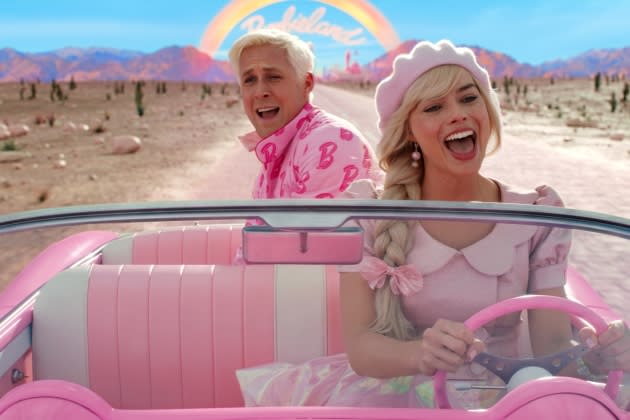‘Barbie’ Movie Banned in Vietnam Over Controversial South China Sea Map
- Oops!Something went wrong.Please try again later.
- Oops!Something went wrong.Please try again later.

Greta Gerwig’s Barbie will not be headed to Vietnam. The country has banned commercial screenings of the film because of a scene that shows a map of the contested “nine-dash line” in the South China Sea.
The nine-dash line is a U-shaped demarcation China has used to assert territorial claims in the South China Sea. Those claims are contested by other nations in the area, including Vietnam. While a court at the Hague issued an international arbitration ruling in 2016 repudiating the line, China has ignored the decision.
More from Rolling Stone
'Barbie' Has Inspired Movies on Barney, He-Man and Polly Pocket
The Brain Behind 'Barbie': Inside the Brilliant Mind of Greta Gerwig
Charli XCX Slams the Gas Pedal on 'Speed Drive' From 'Barbie' Soundtrack
The issue is so fraught that Barbie isn’t even the first movie Vietnam has banned over maps depicting the line.
Per Reuters, a senior official in Vietnam’s Department of Cinema told the state-run Tuoi Tre newspaper, “We do not grant license for the American movie ‘Barbie’ to release in Vietnam because it contains the offending image of the nine-dash line.”
A rep for Warner Bros. did not immediately return Rolling Stone’s request for comment.
Prior to Barbie, the nine-dash line led the Vietnamese government to ban the 2019 animated DreamWorks film Abominable, as well as Sony’s 2022 action flick, Uncharted. Netflix also had to pull the 2021 Australian drama series Pine Gap from Vietnam over a depiction of a nine-gap line map.
Barbie is set to hit theaters everywhere else on July 21. Directed by Gerwig, the film stars Margot Robbie and Ryan Gosling as Barbie and Ken alongside a stacked supporting cast. The film will also feature an all-star soundtrack featuring music from Lizzo, Dua Lipa, Nicki Minaj, Ice Spice, Charli XCX, and more.
In a recent interview with Rolling Stone, Robbie spoke of the importance music plays in the film, saying: “You’re hearing lyrics that are responding to what’s happening onscreen, so the music became more than just music — it became a device to enhance what the audience was watching and experiencing, and got to be the voice of the audience.”
Best of Rolling Stone
